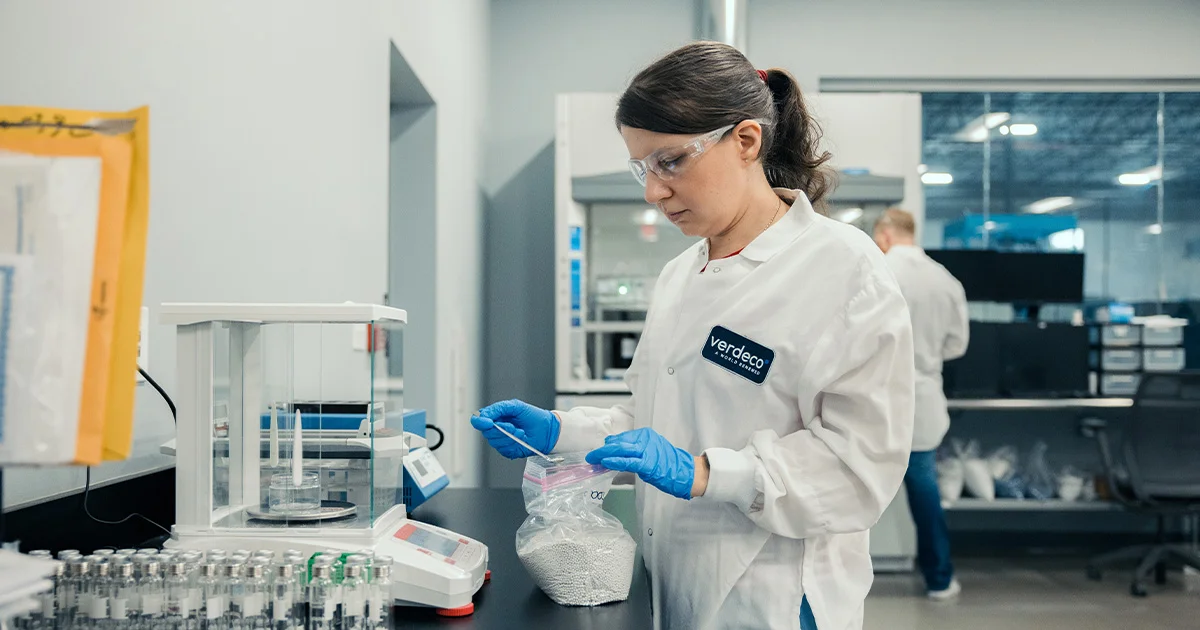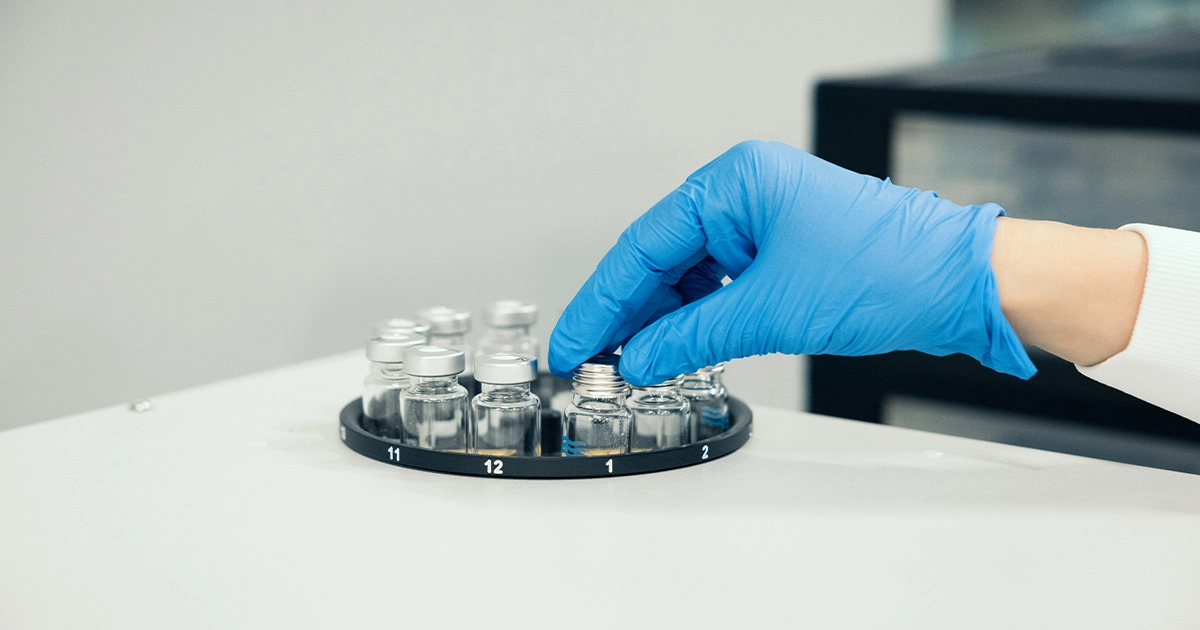Recycling is an industry primed for innovation and technological advancement. To keep reusable materials in circulation and out of landfills, recycling companies need the right technology to maximize the potential of recyclable materials. Large-scale recycling is inherently technology-driven, and several trends in this technology field point to an even more sustainable recycling infrastructure.
Recycling Technology
There is already quite a bit of sophisticated technology used in the recycling industry. One of the most prominent examples can be found in recycling facilities, where mechanical recycling has become the most common method. Here, machines take recycled plastics and process the waste into a secondary raw material. The plastics are collected, sorted, shredded, washed, sorted again, and extruded into a usable material — all with little to no human interaction.
Impressive as they may be, these advancements are just the tip of the technological iceberg. There are even more innovations in the earlier stages of implementation that may become a more common sight in the future of recycling.
Recycling Trends to Look Out For
Several impressive and unexpected innovations are poised to make recycling even more effective in the coming years. Let’s review a few of these technologies and discuss why they’re so exciting to those in the recycling industry.
AI Robots
Artificial Intelligence (AI) has found its way into almost every industry; recycling is no exception. In many recycling facilities, AI robots sort through trash and recyclables to keep similar materials together, thus streamlining the recycling process. These robots use real-time object detection to ensure plastics, metal, glass, and other types of trash go where they should. Pretty cool, right?
There are several upsides to these robots. They lower employment costs for facilities by replacing the need for human sorters. This enhancement is especially helpful in a competitive job market where many potential employees have more job options and may not want to work in a recycling facility. In many cases, AI robots are also more efficient than their human counterparts when sorting through materials. If you ever find yourself touring a recycling facility, don’t be surprised if you see some mechanical employees sorting through those recyclables.
RFID Chips
This next trend may sound a little farfetched, but hear us out — those recycling codes you find on the bottom of many plastic packages could one day become a thing of the past. They may be replaced with small RFID chips embedded into the plastic. The benefit of these chips is the data they would contain, data that would make it easier for recycled materials to be pre-sorted with smart recycling bins. (We’ll discuss this in more detail in just a minute.)
One major reason that a lot of recycling gets trashed is that it’s not properly sorted early in the process. RFID chips would reduce human error in the sorting process, making the recycling system far more efficient. They would also reduce contamination and allow rPET companies to produce higher-quality products in the long run.
Data
Of course, the RFID chips mentioned above wouldn’t work without the data they contain, which explains why enhanced data is another trend to watch. Data is a commonality in AI and RFID technology, and over time, it will help the more efficient technologies we’ve already discussed become even more productive. The AI robots will improve through machine learning and make sorting through commercial waste more effective over time. These machines store data to improve their efficiency, resulting in an even better supply of recycled feedstock for recycling companies.
Smart Recycling Bins
Another exciting innovation in the world of recycling is smart recycling bins. Dr. Xu Wang from the University of Technology in Sydney, Australia, has developed a recycling bin that sorts recycling automatically by classifying different types of waste like metal, glass, and plastic. It recognizes different types of plastics as well, so it can easily distinguish between PET and HDPE. While it’s just a prototype for now, this bin shows incredible promise and could become part of the recycling norm sooner rather than later.
Verdeco’s Advancements in rPET
At Verdeco, we create customer-centric rPET for real-world uses.
Our rPET advances promise to create tangible, positive impacts on the recycling industry. We believe in innovation through disruption, and our research and development focus on providing real solutions for our clients’ needs. We understand that our rPET products are more than just science experiments that operate in a vacuum — they are practical solutions that will be used by consumers. We want our rPET to become just as viable as traditional, virgin PET, and with the way we are working with the future in mind, we believe it can be.
To learn more about Verdeco and how we’re changing the world, visit verdecorecycling.com.



